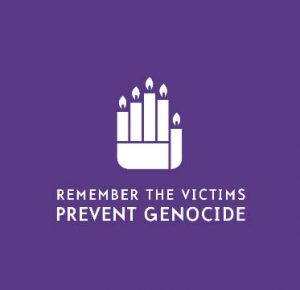
Since 2015, the United Nations has marked the International Day of Commemoration and Dignity of the Victims of the Crime of Genocide and of the Prevention of this Crime, which is often referred to as Genocide Prevention Day.
A Polish lawyer, Raphael Lemkin, first devised the concept of genocide in response to atrocities perpetrated against the Armenian population of the Ottoman Empire, which took place between 1915 and 1923.
On this day, we remember victims of genocide. People around the world are encouraged to learn from the past , and take action to prevent future atrocities.
The date marks the United Nation’s adoption of the 1948 Convention on the Prevention and Punishment of the Crime of Genocide. Following the horrors of the Holocaust, the convention outlined the international community’s commitment to ‘never again’ and defined genocide
United Nation’s Secretary-General António Guterres states that “Ultimately, preventing genocide involves all of society. It is crucial that we all join hands to defend the principles of equality and human dignity and to repair the fissures and polarization that are so prevalent in our societies today.”
The Genocide Convention (article 2) defines genocide as “any of the following acts committed with intent to destroy, in whole or in part, a national, ethnical, racial or religious group … “,
Didi you know that the Genocide Convention (article 2) includes:
- Killing members of the group;
- Causing serious bodily or mental harm to members of the group;
- Deliberately inflicting on the group conditions of life calculated to bring about its physical destruction in whole or in part;
- Imposing measures intended to prevent births within the group;
- Forcibly transferring children of the group to another group.
- The Convention confirms that genocide, whether committed in time of peace or war, is a crime under international law which parties to the Convention undertake “to prevent and to punish” (article 1). The primary responsibility to prevent and stop genocide lies with the State.
https://www.un.org/en/observances/genocide-prevention-day
The Ten Stages of Genocide by Founder and President of Genocide Watch, Dr. Gregory Stanton; ‘’Genocide is a process that develops in ten stages that are predictable but not inexorable. At each stage, preventive measures can stop it.’’
This model aims to describe the processes that lead to genocide.
Ten stages of genocide
- Classification: People are divided into “us and them”.
- Symbolization: People are forced to identify themselves.
- Discrimination: People begin to face systematic discrimination.
- Dehumanization: People equated with animals, vermin or diseases.
- Organization: The government creates special groups (police/military) to enforce the policies.
- Polarization: The government broadcasts propaganda to turn the populace against the group.
- Preparation: Official action to remove/relocate people begins.
- Persecution: Beginning of murders, theft of property, trial massacres.
- Extermination: Wholesale elimination of the group. It is “extermination” and not murder because the people are not considered human.
- Denial: The government denies that it has committed any crime.
Stanton, Gregory (2012); 10 Stages of Genocide, Genocide Watch
‘’I say to all those leaders, do not look the other way.
Do not hesitate… It is within your power
to avoid a genocide of humanity.’’
Nelson Mandela
